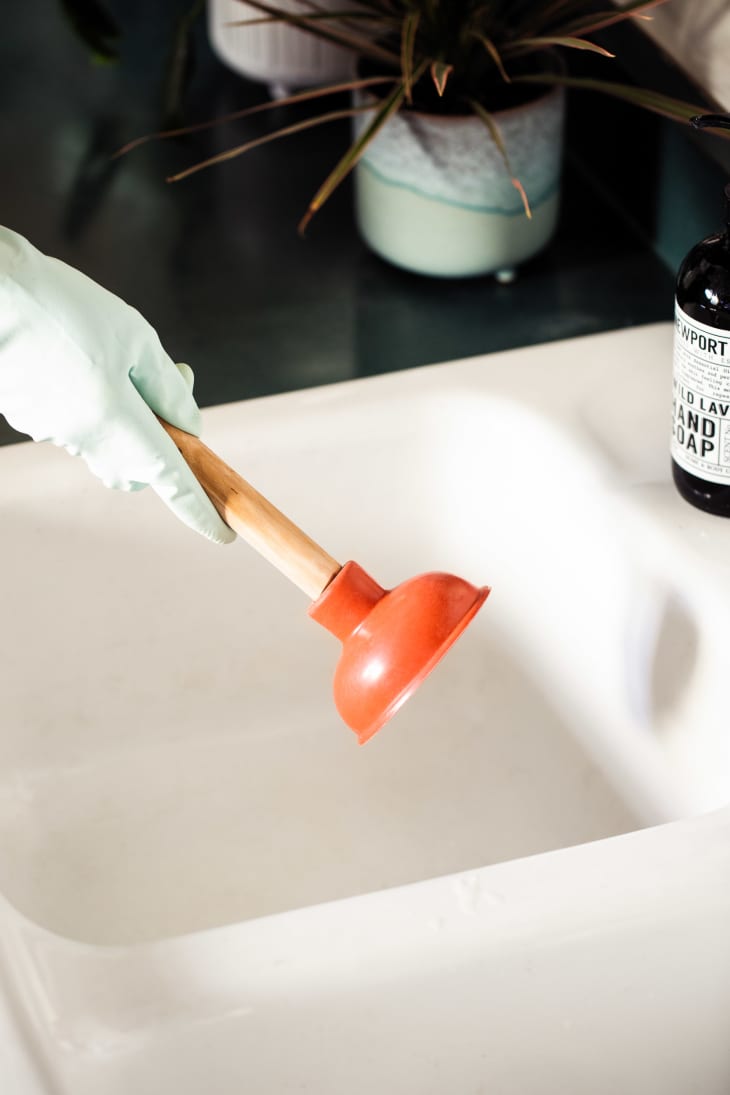3 Things Plumbers Recommend You Have on Hand at All Times

As the season for holiday hosting winds up, the risk becomes higher that all sorts of not-so-ideal stuff will be going down the drain. Clogs ensue, and headaches begin. But even if you’re not hosting many guests this year, you’ve still had to deal with a clog before. Or a slower-than-normal drain. Or odd gurgling noises. Or stinky odors.
Well, I spoke to a couple of plumbers who cautioned us against using store-bought drain cleaners. Not only are they pricey, but they also have the potential to make matters worse. Instead of truly dissolving the clog, they tend to just push the clog deeper into your pipes. Loren Bottem, a plumbing manager with Genz-Ryan, says that harsh cleaners “also have the potential to damage your pipes. If [the pipes are] older, they can easily corrode.”
So what should you do if this problem arises? Here are the three most important things the pros want you to have on hand, for any time of year.
1. Baking soda and vinegar
Bottem suggests baking soda and white vinegar for clogged drains. Doyle James, president of Mr. Rooter Plumbing, agrees and recommends concocting a mixture of 1/3 cup baking soda and 1/3 cup white vinegar in a bowl. Once combined, you’ll notice the mixture will start to fizz. “Pour it immediately down the drain and the fizzing action will help break down the grime,” says James. “Let it sit for about an hour, and then flush with hot water.” You can also pour a little baking soda down the drain first, and then chase it with white vinegar.
2. Borax
Umberto Griccino, a commercial plumber and consultant at House Grail, says you can wear gloves and combine 1/2 cup borax with two cups of boiling water. Pour the mixture down the drain, wait 15 minutes, then flush it with hot water. While borax works wonders on drains, be very careful while you use this household cleaner, as it can be toxic and irritating to your skin and eyes and, if inhaled, it can lead to nausea, vomiting, and difficulty breathing. Also, avoid pouring boiling water down the drain if you have PVC piping or a porcelain sink, as it can cause damage.
3. A plunger
Of course, a plunger can also help to unclog a drain, Griccino adds. Fill the sink with a few inches of water, then work the plunger up and down over the drain several times. When you pull the plunger off the drain opening, the force should pull up whatever was clogging it.
What drain-cleaning tips and tools do you use? Tell us in the comments below.
This post originally ran on Kitchn. See it there: 3 Things These Plumbers Think You Should Have on Hand at All Times